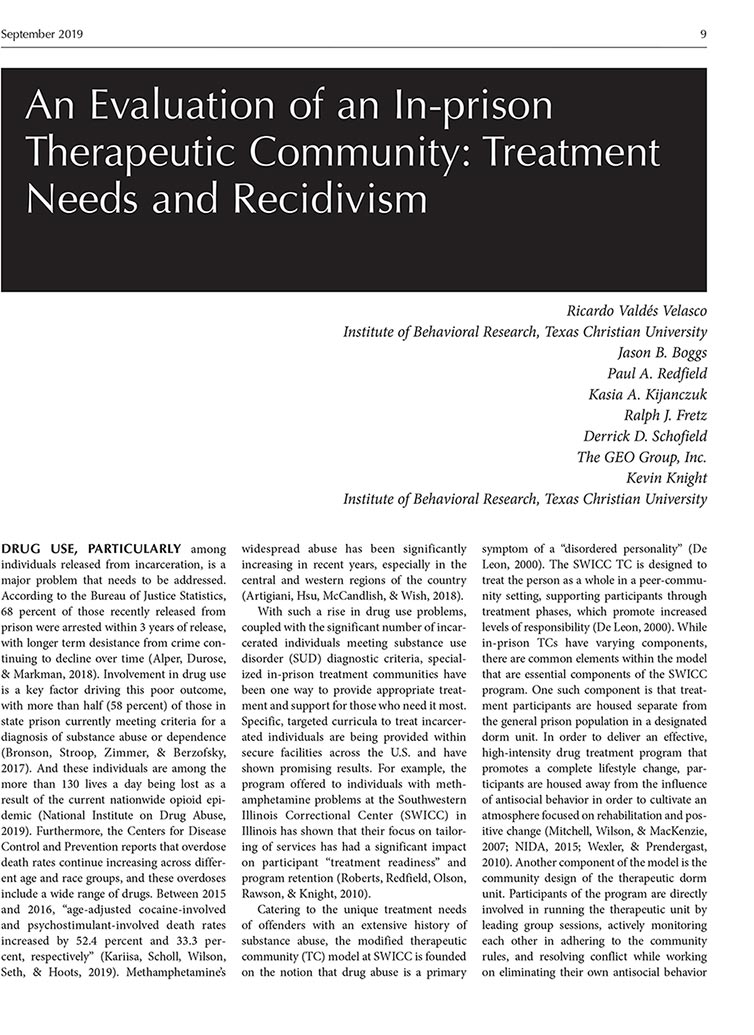According to the Bureau of Justice Statistics, almost seven of 10 individuals released from prison are rearrested within three years. Involvement in drug use is a key driving factor for this poor outcome. Despite the fact that more than half of inmates in prison meet the diagnosis for substance abuse or dependency, few receive treatment before being released.
These and other key issues are addressed in a recently published article in Federal Probation (Volume 83, Number 2) titled “An Evaluation of an In-prison Therapeutic Community: Treatment Needs and Recidivism” authored by five GEO Care representatives, including Jason B. Boggs, Paul A. Redfield, Kasia A. Kijanczuk, Ralph J. Fretz, and Derrick D. Schofield, and two individuals from Texas Christian University’s Institute of Behavioral Research.
Specifically, the authors analyzed the results of a modified therapeutic community model at the Illinois Department of Corrections’ Southwestern Illinois Correctional Center (SWICC), a 763-bed, male, minimum security facility. The SWICC treatment model “is designed to treat the person as a whole in a peer community setting, supporting participants through treatment phases, which promote increased levels of responsibility,” according to the authors.
Inmates in the treatment regiment are housed away from the prison general population, and participants in the program are directly involved in program delivery, including leading group sessions, monitoring each other for adherence to program rules, and resolving conflicts while working on their own antisocial behaviors.
Importantly, the researchers found a significant difference between those who had participated in the treatment regiment – whether they completed it or not – versus the Illinois recidivism rate. Individuals who completed the curriculum recidivated at a rate of 28.57%; those who completed some of the curriculum recidivated at a rate of 26.67%; and the state’s normal recidivism rate is 43%.

